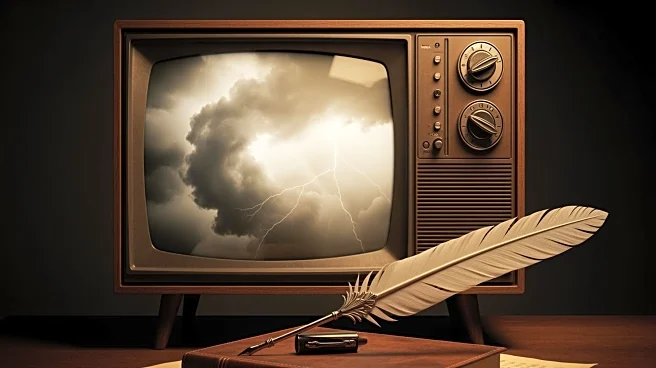What's Happening?
College athletes are increasingly questioning the value of maintaining a social media presence due to the growing toxicity associated with online interactions. Many athletes, like Cam Corhen of the Pittsburgh
Panthers, have experienced harassment and threats from disgruntled sports gamblers. Corhen, who faced disturbing messages after a game injury affected a gambler's bet, decided to log off social media entirely. Despite the potential financial benefits of sponsored posts, athletes are finding the negative impact on their mental health and personal lives outweighs the advantages. Coaches like Jeff Capel have also taken steps to protect their peace by reducing their social media activity, highlighting the pervasive issue of online harassment in college sports.
Why It's Important?
The increasing toxicity of social media poses significant challenges for college athletes, who are often encouraged to build their personal brands online. While social media can offer financial opportunities and enhance visibility, the mental health risks associated with online harassment are prompting athletes and coaches to reconsider their engagement. This shift could impact the business model of college sports, where social media plays a crucial role in marketing and recruitment. As athletes prioritize their well-being over online presence, universities and sports organizations may need to address the balance between digital engagement and mental health support.
What's Next?
As more athletes and coaches opt out of social media, sports organizations may need to develop strategies to protect their members from online harassment. This could involve implementing stricter regulations on social media interactions or providing mental health resources to athletes affected by online abuse. Additionally, the NCAA and other governing bodies might consider collaborating with social media platforms to address the issue of anonymous threats and harassment. The evolving landscape of college sports marketing may also prompt a reevaluation of how athletes are encouraged to engage with social media.
Beyond the Headlines
The decision by athletes to reduce their social media presence could have broader implications for the culture of college sports. It raises questions about the ethical responsibilities of sports organizations in safeguarding their athletes from digital harm. Furthermore, it highlights the need for a cultural shift towards valuing athletes' mental health and personal well-being over commercial interests. This development may also influence how future generations of athletes approach their careers, prioritizing personal fulfillment and mental health over public visibility.










